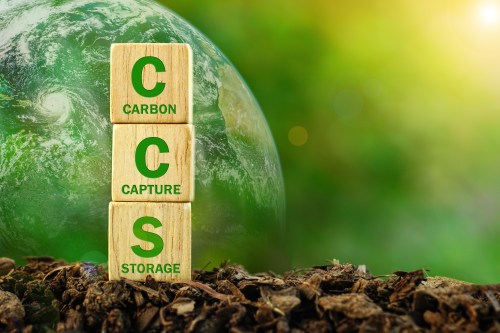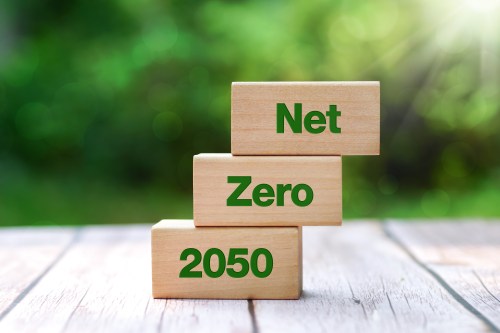Workshop 5
Geochemistry’s Role On Advancing Climate Change And Energy Transition Research Sunday, June 1st | Room 9 (Level2)
Convenors
- Isabelle Kowalewski (IFPEN)
- Olivier Sissmann (IFPEN)
- Courtney Turich (Chair EAOG) (IEA)
- Jacobo Canal (Repsol)
Co-organized by the EAGE-EAG Technical Community on Geochemistry
Description
The workshop will address current and future challenges and research directions facing geochemistry to contribute to achieving carbon neutrality by 2050. The workshop will provide an overview of recent geochemical developments dealing with, among others, the compensation of anthropogenic gas emissions, the surface and subsurface storage of carbon, the new energy resource assessment (H2, Li, He). Through illustrative application cases, we will delve into geochemical analytical approaches. The aim is to address and discuss in depth the future challenges we will face to move faster and better towards a decarbonized world.
Sub-Topics that will be covered in the workshop:
- Geochemistry for CO2 Removal: CCS, subsurface organo-mineral interactions, water geochemistry, surface mineralization, enhanced wheathering, etc.
- Geochemistry for New Energy Resources in the Energy Transition: Native hydrogen, helium, lithium, critical materials, etc…
- Geochemistry for Climate and Environment: Soil recarbonization, post-mining risks and impacts, petroleum industry emissions from exploration to decommissioning, soil pollution and remediation, climate change mitigation, natural gas emissions, air pollution.


Participant Profile
The target audience is geoscientists from industry and academia who are interested in improving their knowledge of new advances in geochemistry within a sustainable and environmental framework and in exchanging views on emerging research issues for climate and environment.
Workshop Programme
| Time | Activity |
|---|---|
| 09:30 | Welcome Remarks |
| Session 1: Geochemistry for Climate and Environment - Chairs: Isabelle Kowalewski (IFPEN) & Sina Rezaei Gomari (Teesside Univ.) | |
| 09:45 | Rock-Eval Thermal Analyses: Insights into Climate Change - I. Kowalewski (IFPEN, France) |
| 10:05 | Novel isotope tracers for atmospheric gases - Dr. Alexis Gilbert (Utrecht, Netherland) |
| 10:25 | Implications of Sulfurization on Carbon Preservation and GHG Emissions Using Combined Thermal Rock-Eval and Sulfur Isotope Proxies - Alon Amrani (University of Jerusalem, Israel) |
| 10:45 | Coffee Break |
| Session 2: Geochemistry for CO2 Removal - Chair: Jacobo Canal Vila (Repsol) | |
| 11:15 | CO2 mineralisation based on CCS - Jacobo Canal Vila (Repsol, Madrid) |
| 11:35 | Insights into the Geochemistry of the Carbonation Process in Soils Amended with Clay-Rich Waste Materials: A Nature-Based Solution for Carbon Removal - Sina Rezaei Gomari (Teesside University, UK) |
| 11:55 | Leaving the confort zone: Why geochemistry matters in subsurface gas storage projects - Jorge José Delgado Martín (University of A Coruña, Spain) |
| 12:15 | Understanding the History of Subsurface Fluids and Migration Via the Analysis of Entrained Volatiles in Cuttings and Cores and the Implications for Selecting Carbon Capture Storage Sites - Christofer Smith (FI, ….) |
| 12:35 | Lunch Break |
| 13:50 | CO2 Mineralization in Mafic Formations: Fracture Network and Water Availability - Andrea Munoz (Georgia Institute of Technology, USA) |
| 14:10 | Accelerating geochemical CO2 storage through water-alternating-gas injections in reactive reservoirs - Claire Nelson (CELLA, USA) |
| 14:30 | CO2 mineral sequestration - Pascale Bénézeth (Université Toulouse - GET) |
| 14:50 | Carbon Dioxide Removal through bio engineered solutions - Caroline Thaler (Bloomineral) |
| 15:10 | Q&A Panel / round table |
| 15:30 | Coffee Break |
| Session 3: Geochemistry for New Energy Resources in the Energy Transition - Chairs: Courtney Turich (IEA) & Olivier Sissmann (IFPEN) | |
| 15:50 | Critical Minerals Recycling from Waste - C. Turich (IEA) |
| 16:10 | Geochemistry of Natural H2 - O. Sissmann (IFPEN) |
| 16:30 | Geologic H2 source rocks : natural emissions and stimulation - Ugo Geymond (Vema Hydrogen, France) |
| 16:50 | Q&A Panel / round table |
| 17:10 | End of Workshop |


